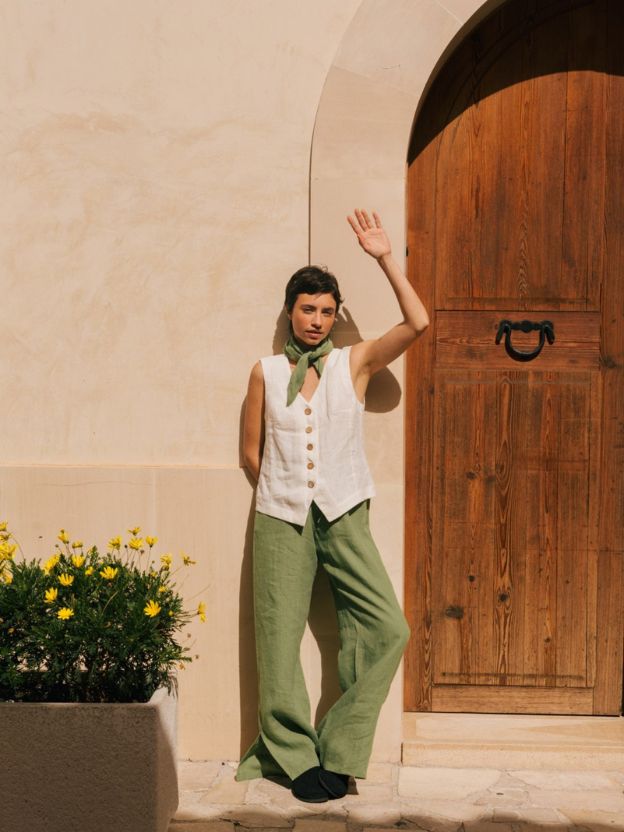AmourLinen Sustainability
IVALO.COM 360 sustainability validation allows you to view brand sustainability by category, and therefore match it better with your personal values. We measure brand sustainability in eight categories.

Free shipping for orders over 50€ until November 30
14 days return
Over 150 Fact-Checked Sustainable Brands

AmourLinen is a sustainable linen brand from Lithuania, where it was born in a local café in 2019. AmourLinen makes lovely bed linen, towels, and kitchen textiles with a zero-waste approach. Their collection also includes clothes made from linen.
The brand's founder, Lukas had a passion for experimenting and creating new things and had already run small businesses before AmourLinen was born. Lukas' goal was and still is to put his homeland Lithuania on the world map. Love for Lithuania may be one of the reasons why Lukas decided to start working with linen fabric as it has deep roots in Lithuanian craftsmanship and history.
Despite the limitations and setbacks of the covid pandemic, AmourLinen has already grown into a respectable company that now produces linen home textiles for customers all over the world. Since then AmourLinen has been joined by Miglė who develops the brand and its business. Miglė had ten years of experience in fashion and the clothing industry; he has worked for various brands in France. Miglė's vision is to promote slow living, encourage craftsmanship, and give access to organic and sustainable products for all. Buy less - buy better!
AmourLinen is based in Vilnius, Lithuania and employs a team of full-time seamstresses who make all products by hand. AmourLinen uses certified European linen, recycled materials in its packaging and favors environmentally friendly delivery options. The brand aims to maximize the circular economy in its production to minimize fabric waste. Their customers can also buy linen waste for the same reason.
IVALO.COM 360 sustainability validation allows you to view brand sustainability by category, and therefore match it better with your personal values. We measure brand sustainability in eight categories.
Working conditions & Labour
90%Environmental Impact
58%Sustainable materials
83%Transparent value chain
79%Design for circularity
70%Inclusivity & community
68%Commitments & Policies
69%Responsible e-commerce
86%